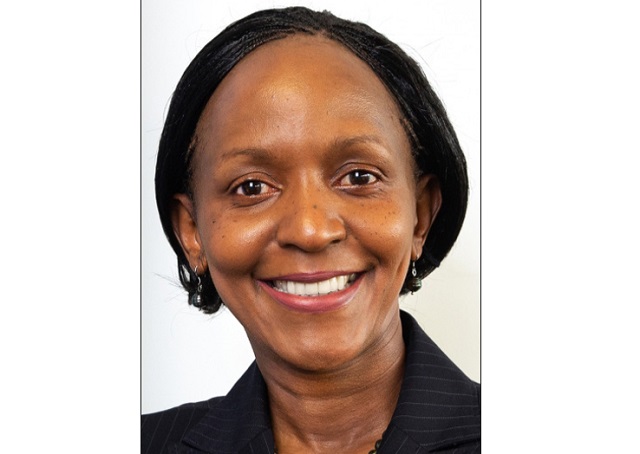
Africa is grappling with myriad environmental and climate challenges, from drought to loss of biodiversity, cyclones and plastics pollution. Africa Renewal’s Zipporah Musau spoke with the United Nations Environment Programme’s Deputy Executive Director, Joyce Msuya, on how African countries can mitigate some of these challenges and the opportunities ahead.
What are some of the major environmental challenges facing Africa today and how can they be addressed?
I would summarize the biggest environmental challenges facing Africa today in four categories. One is the impact of climate change, considering that most African economies still depend on the agriculture sector. The second is loss of biodiversity because this impacts food security and natural ecosystems. The third is energy, as many African economies are growing fast and require sufficient energy. Lastly, looking at the demographic trends, there is a lot of growth in urban areas with populations moving to cities.
This brings challenges, including that of waste management. Are there any opportunities?
There are exciting opportunities. After the Paris Agreement, there was a global commitment and political will to address climate change. We are currently working with African countries to help them develop national plans in mitigation and adaptation. On nature, next year there will be a big global meeting in China on the Convention on Biological Diversity, offering African member states the opportunity to shape the global biodiversity agenda by sharing strategies that are working well and can be replicated elsewhere.
Africa is endowed with many hours of unobstructed sunlight; how can we promote more usage of solar energy and other renewables to fuel Africa’s economies? UNEP has been pushing for a green economy by promoting low carbon, resource efficient and socially inclusive policies. How can African countries tap into this?
Push for cleaner sources of energy. We are already seeing several developments in this. If you follow what is happening in South Africa, trying to move its heavy manufacturing industrial sector from being dependent on coal to cleaner energy…it is a slow process. Transition from bad sources of energy to renewables takes time. Then we have banning deforestation and making green economy plans. Countries like Ethiopia, Ghana and South Africa are moving in this direction. It needs ministers of environment to work very closely with ministers of finance to develop these plans. UNEP is using its convening role to help member states do this. UN Environment supports and showcases science-informed policies that have the potential to transform humanity’s relationship with our environment.
What are some of the ways African countries can deal with the plastic menace?
Governments, citizens, the private sector and civil society all have a role to play when it comes to plastics. There are four ways that African governments and citizens can help with the menace. First is leadership and political will to actually put in place regulations to ban single-use plastics and promote reuse of smart plastics. The second is for the citizens to make smart choices, children telling their parents ‘mama, papa, please don’t buy plastics’. Consumer choices can influence the environmental footprint of plastics. Third, we need to celebrate and advance homegrown advocacy such as the “Flip Flopi,” an indigenous innovation from Kenya where a boat has been made entirely out of plastics found on beaches. It recently sailed from Lamu to Zanzibar to raise awareness.
Lastly, partnerships with the private sector. If you look at good examples of where single-use plastics have been banned, there have been engagements between governments and the private sector to encourage them to find alternative and more sustainable ways to replace plastics bags.
Part of UNEP’s role is to promote the sharing of these experiences. A number of countries in Africa, including my own, Tanzania, and also Kenya, are looking at how they can preserve the national parks to sustain the tourism industry and people’s livelihoods. And finally, we need to see how we can address the plastic menace by introducing more circularity into economies. This is where capacity-building support for governments will be critical.
How is UNEP helping member states in Africa to achieve SDGs and the 2030 Sustainable Development Agenda?In particular, how is UNEP coordinating with pan-African organisations such as the African Union to address the effects of climate change?
UN Environment supports and showcases science-informed policies that have the potential to transform humanity’s relationship with our environment. We also host global platforms – from the UN Environment Assembly to international financial networks to multilateral environmental agreements – that catalyze action. And we advocate, working with citizens across the world, to inspire change. However, we cannot do it alone because the scale of the challenge is huge but there are enormous opportunities to make a difference and so partnerships are critical. For political advocacy we are engaging with the African Union through our office in Addis Ababa. We provide policy advice, technical assistance and capacity building. We are working with NEPAD and talking to the East African Community to see how we can support the sub-regional and regional initiatives. I was in Cape Town, South Africa, earlier this year, with other regional bodies, to learn how countries develop green economic plans
****
 The Independent Uganda: You get the Truth we Pay the Price
The Independent Uganda: You get the Truth we Pay the Price



